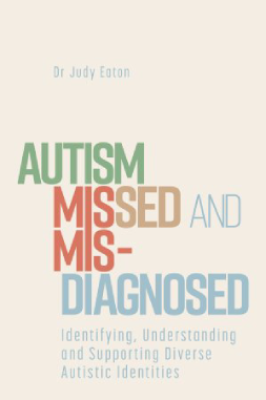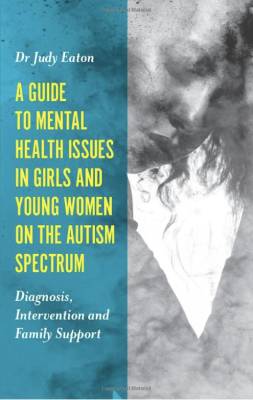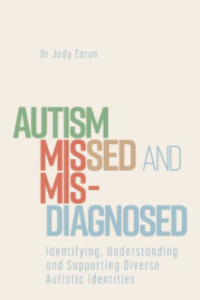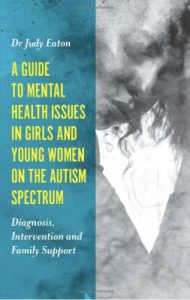Having worked in the field of psychological assessment and intervention since 1993, I began my career as an academic, researching language and emotional understanding in typically and atypically developing children, before deciding to move into Clinical Psychology.

Dr Judy Eaton
Job Title:
Clinical Director and Consultant Clinical PsychologistClinic Location:
NorwichRegistration body:
HCPCThe British Psychological Society awarded me Chartered Psychologist status in 1997. I am a Registered Practitioner Psychologist (Clinical) with the Health and Care Professions Council.
I worked in the field of clinical psychology within the National Health Service for ten years, and have also worked in a low secure psychiatric hospital for children and adults as Lead Consultant Clinical Psychologist.
As a Consultant Clinical Psychologist I have extensive experience of assessing, diagnosing and working therapeutically with adults, children and families across the ability spectrum; specifically those with disorders such as Autistic Spectrum Disorder (ASD), Attention Deficit Hyperactivity Disorder (ADHD), Pathological Demand Avoidance (PDA), and generalised learning disabilities, (e.g. Down’s Syndrome), with my clinical practice being influenced by systemic family therapy. During the last 20 years I have been involved with the assessment of around 2,000 children and young adults for the above disorders. This includes working with children with Autism and profound learning difficulties in a residential school setting, who presented with extremely challenging behaviour, and with adults and young people with Autism Spectrum Disorders, co-morbid mental health difficulties and, at times, a forensic history who are detained under the Mental Health Act. I specialise in working with families where there are complex needs and/or very challenging behaviour.
I have considerable experience of working with adults with learning difficulties, personality disorders, schizophrenia and neuro-developmental difficulties such as Autism, including those who have a forensic history or who have offended. This has led to acquiring an extensive experience in the assessment and diagnosis of both children and adults with Autism, and experience in the management of challenging behaviour within in this client group. I have worked with women with a dual diagnosis of Personality Disorder and Autism, leading to a particular interest in the parenting capacity of women with mental health and/or neuro-developmental difficulties.
Areas of assessment and report writing include:
- Attachment / Children’s Emotional Needs / Psychological Profiles
- Complex Family Functioning
- Intellectual Ability and / or Social and Adaptive Functioning
- Parenting – including impact of a learning disability / mental health issue
- Assessment and diagnosis of Autism Spectrum Disorders in both children and adults, including Pathological Demand Avoidance (PDA)
I have recently been appointed as a visiting Research Fellow in the department of Social, Genetic and Developmental Psychiatry, Institute of Psychiatry, King’s College London, working with Prof Francesca Happe, Director of MRC Centre and Head of Department of SGDP, and Dr Liz O’Nions from the Parenting and Special Education Unit, KU Leuven in Belgium. I will be working on a research project entitled ‘Behaviour and Neurocognitive Profiles in ASD with and without Extreme Demand Avoidance’.
Book:
Autism – Missed and Misdiagnosed, Identifying, Understanding and Supporting Diverse Autistic Identities – Jessica Kingsley Press: London, UK (2023)
A Guide to Mental Health Issues in Girls and Young Women on the Autism Spectrum: Diagnosis, Intervention and Family Support – Jessica Kingsley Press: London, UK (2017)
Book chapters:
Eaton J (2019) ‘A Clinical Psychology Perspective on the Experiences and Mental Health Challenges of Girls with Autism’ in Hebron, J and Bond, C (Eds) Educating Girls on the Autistic Spectrum – Developing an Integrated Approach. Jessica Kingsley Press.
Journal/magazine articles:
Eaton, J and Weaver, K (2020) An exploration of the Pathological (or Extreme) Demand Avoidant profile in children referred for an autism diagnostic assessment using data from ADOS-2 assessments and from their developmental histories. Good Autism Practice, 21, 2 pp 33 – 51
Eaton, J H, Collis, G M and Lewis V A (1999) ‘Evaluative explanations of children’s narratives of a video sequence without dialogue. Journal of Child Language 26.03, 699 – 720
Current projects:
Co-Author on the new guidelines for BASW (British Association of Social Workers) on Fabricated and Induced Illness.
Forensic and Clinical Aspects of Adult Autism, St Andrew’s Healthcare Forensic Autism conference, 2010
Autism and Paedophilia, Learning Disability and Offending Conference, Newcastle, 2013
Females and Autism, FICAPS Risk and Recovery in In-Patient Settings, Manchester, 2014
Subsequent Care Planning for Adults with PDA – a Case Study, National Autistic Society conference, Cardiff 2014
WIPC Conference, Assessing Parenting Capacity in persons with Autism, Oxford, October 2015
ASD Helping Hands Ageing with Autism Conference, Understanding Autism assessment and Diagnosis, Norwich, November 2017
NAS PDA Conference, Understanding and managing challenging behaviour in children with the PDA profile, Peterborough, November 2017
PDA Society Conference, Mental Health Challenges for Adults with the PDA profile, Birmingham, April 2018
ESSENCE Autism Conference, The Pathological Demand Avoidant profile, Odense, Denmark, April 2018
NAS Mental Health Conference, Mental Health Challenges for females with Autism, Leeds, September 2018
NAS PDA Conference, Differential diagnosis between the PDA profile and Attachment Disorder, Manchester, November 2018
PDA Research meeting, presenting initial findings from research project, Kings College London, January 2019
PDA Conference, Recognising less typical presentations of Autism Spectrum Disorder, Belfast, September 2019
NAS PDA Conference, The Clinical Approach to Diagnosis of the PDA profile, Birmingham, November 2019
Infomed Conference, Identifying and Supporting Children with Autism and Extreme Demand Avoidance, London, December 2019
PDA Conference, The Essence of PDA, Dublin, January 2020
ACAMHS Conference, Mental Health and Girls with Autism, London, February 2020
ACAMHS Conference, Identifying and Supporting Children with Autism and Extreme Demand Avoidance, London, February 2020
Training for the Royal College of Psychiatrists (perinatal psychiatrists) in postnatal depression in Autistic mothers September 2021
Training for the Royal College of Paediatricians in Autism and specifically the PDA profile September 2021
Training for the NHS services in Sheffield on differentiating the PDA profile from attachment disorder October 2021
I have found nothing that comes close to the quality of this book for ASD in females.
T Reagan, Director of the OSF Adult Diagnostic Autism Clinic in Peoria, IL
Recommended Reading

Autism presents in a multitude of different and highly nuanced ways – particularly as it intersects with variance in class, gender, race and age.
Misunderstanding and misinformation around variant and differing presentations means that misdiagnosed individuals and those who do not receive a diagnosis at all are often failed by medical, education, social care and criminal justice systems. They are detained in inappropriate settings; don’t receive beneficial therapeutic input; have their families accused of fabricated or induced illness (FII); are kept in prison or youth offending institutions longer than their original tariffs, and shockingly their life expectancy is often curtailed as a result.
This comprehensive resource will help multidisciplinary professions to understand, contextualise, and better identify diverse autistic presentations. It includes an overview of the autism diagnostic process, an exploration of controversial and commonly confused diagnoses such as PDA, ODD, CD, ASPD, and BPD; discussions of best practice for investigating FII; and analysis of the specific challenges of autism diagnosis in relation to women and girls, BAME communities, schools, and the criminal justice system.

A Guide to Mental Health Issues in Girls and Young Women on the Autism Spectrum: Diagnosis, Intervention and Family Support
This book addresses the specific mental health needs of girls and young women with autism spectrum disorder (ASD). Looking at the ways autism presents differently in girls than in boys, and the mental health conditions that occur most frequently in girls with ASD, this is the essential guide for clinicians and educators on tailoring interventions and support to meet girls’ needs.
Describing the current assessment process for autism diagnosis, the book explains why girls are under-

Misunderstanding and misinformation around variant and differing presentations means that misdiagnosed individuals and those who do not receive a diagnosis at all are often failed by medical, education, social care and criminal justice systems. They are detained in inappropriate settings; don’t receive beneficial therapeutic input; have their families accused of fabricated or induced illness (FII); are kept in prison or youth offending institutions longer than their original tariffs, and shockingly their life expectancy is often curtailed as a result.
This comprehensive resource will help multidisciplinary professions to understand, contextualise, and better identify diverse autistic presentations. It includes an overview of the autism diagnostic process, an exploration of controversial and commonly confused diagnoses such as PDA, ODD, CD, ASPD, and BPD; discussions of best practice for investigating FII; and analysis of the specific challenges of autism diagnosis in relation to women and girls, BAME communities, schools, and the criminal justice system.
Available now

A Guide to Mental Health Issues in Girls and Young Women on the Autism Spectrum: Diagnosis, Intervention and Family Support
This book addresses the specific mental health needs of girls and young women with autism spectrum disorder (ASD). Looking at the ways autism presents differently in girls than in boys, and the mental health conditions that occur most frequently in girls with ASD, this is the essential guide for clinicians and educators on tailoring interventions and support to meet girls’ needs.
Describing the current assessment process for autism diagnosis, the book explains why girls are under-


